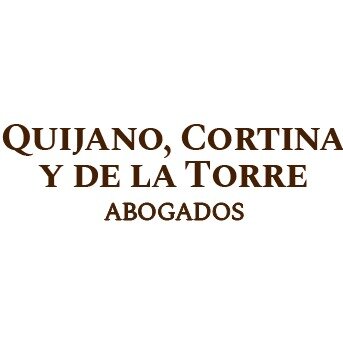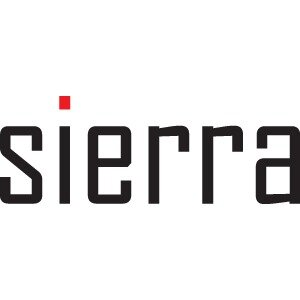Best Renewable & Alternative Energy Lawyers in Mexico City
Share your needs with us, get contacted by law firms.
Free. Takes 2 min.
List of the best lawyers in Mexico City, Mexico
About Renewable & Alternative Energy Law in Mexico City, Mexico
Renewable and alternative energy law in Mexico City is a specialized field that covers legal frameworks, regulations, and incentives for the generation and use of clean energy sources. As Mexico commits to sustainable development and reducing its carbon emissions, Mexico City has implemented distinctive regulations to promote solar, wind, hydro, and other alternative energies. Legal matters surrounding permits, interconnection to the grid, environmental compliance, and investment structures are governed by both federal and city-level policies, reflecting Mexico’s broader push for energy transition.
Why You May Need a Lawyer
Securing legal support is often crucial when navigating the renewable and alternative energy sector in Mexico City. Common scenarios where legal assistance is valuable include:
- Obtaining permits and approvals for solar panel installation or wind turbines
- Negotiating power purchase agreements with public or private entities
- Understanding and complying with environmental regulations specific to Mexico City
- Structuring investments, joint ventures, or financing for renewable energy projects
- Resolving disputes related to land use, interconnection rights, or contracts
- Participating in government incentive programs and tenders
- Managing importation of renewable energy technology and understanding applicable tariffs
- Adapting to frequent changes in energy policies and local requirements
Given the complexity and evolving nature of energy laws, having a lawyer specialized in the sector can help ensure compliance, protect investments, and maximize project success.
Local Laws Overview
Renewable energy in Mexico City operates under both federal and local laws. The most significant regulations include:
- The Mexican Energy Transition Law (Ley de Transición Energética) establishes targets for clean energy production and energy efficiency measures nationwide.
- The Electricity Industry Law (Ley de la Industria Eléctrica) governs the generation, transmission, distribution, and commercialization of electric power, including interconnection of renewable energy to the grid.
- Mexico City’s Environmental Law sets additional rules for the installation of renewable energy systems and mandates local environmental impact assessments for medium or large-scale projects.
- The city government provides incentives, such as property tax reductions, for building owners who install approved solar energy systems.
- Construction codes in Mexico City require new buildings to consider energy efficiency and, in some cases, to integrate renewable energy sources.
- Permissions for distributed generation (local energy production for self-consumption) are managed by the Federal Electricity Commission (CFE) and require specific technical and legal compliance.
Legal requirements are subject to change, and often involve coordination with both federal agencies and Mexico City authorities.
Frequently Asked Questions
What types of renewable energy projects are most common in Mexico City?
Solar energy is the most prevalent due to abundant sunlight, followed by smaller-scale wind and geothermal projects. Rooftop solar installations on residential and commercial buildings are particularly popular.
Do I need a permit to install solar panels at my home or business in Mexico City?
Yes, most installations require permits from both the city and federal authorities, especially when connecting to the public electricity grid. Small domestic systems usually follow a simplified procedure.
What incentives are available for renewable energy in Mexico City?
Local incentives may include reductions in property taxes, expedited permitting for solar panels, and participation in net metering programs that allow you to sell excess energy back to the grid.
What is net metering and how does it work in Mexico?
Net metering permits renewable energy users to feed surplus power back into the grid and receive credits, reducing their overall electricity costs. The specifics are regulated federally but implemented locally in partnership with the CFE.
How does the interconnection process work?
To connect a renewable energy system to the electricity grid, you must submit technical documentation and obtain approvals from the CFE. Legal counsel can help ensure applications are properly prepared and in compliance with regulations.
Are there restrictions on foreign investment in renewable energy projects?
Foreign investors are generally welcomed, but must comply with Mexican corporate and environmental laws. Some restrictions may apply to projects involving natural resources or land near borders.
What environmental assessments are required?
Projects of a certain size or impact require an Environmental Impact Assessment (EIA), which must be approved by local or national environmental authorities before construction begins.
How are disputes in renewable energy contracts resolved?
Contracts typically specify dispute resolution mechanisms, which may include Mexican courts or arbitration. Legal professionals can help draft clear terms to prevent or resolve conflicts.
Can communities or individuals generate and sell renewable energy?
Both individuals and collectives can generate renewable energy. Participation in the Mexican Wholesale Electricity Market is possible, but subject to regulatory compliance and minimum capacity requirements.
What are the main challenges in developing renewable energy in Mexico City?
Common challenges include navigating complex permitting processes, keeping up with changing regulations, grid capacity limitations, and securing financing or incentives. Legal counsel is essential for managing these matters.
Additional Resources
To further understand the legal framework and receive updated information, consider the following resources:
- Mexico City’s Secretariat of the Environment (SEDEMA) for local policies and permits
- Federal Electricity Commission (CFE) for grid connection and energy distribution guidelines
- National Energy Control Center (CENACE) for market operations and regulations
- Energy Regulatory Commission (CRE) for licensing and compliance inquiries
- Mexican Association of Solar Energy (Asolmex) and other industry groups for industry trends and networking
- Environmental law firms and consultancies specializing in renewable energy
Next Steps
If you need legal assistance in renewable and alternative energy in Mexico City, consider the following steps:
- Gather relevant documentation, such as property deeds, energy bills, and project plans
- Identify your project goals and potential challenges, including technical and financial aspects
- Consult with a lawyer or law firm specializing in Mexican energy law and local regulations
- Ask about the lawyer’s experience with similar projects and their familiarity with local authorities
- Request a clear outline of legal services, expected timelines, and fee structures
- Stay informed about policy updates by referencing official agencies and reputable industry groups
Starting with informed legal guidance can streamline your project's development and help you take full advantage of Mexico City’s growing renewable energy sector.
Lawzana helps you find the best lawyers and law firms in Mexico City through a curated and pre-screened list of qualified legal professionals. Our platform offers rankings and detailed profiles of attorneys and law firms, allowing you to compare based on practice areas, including Renewable & Alternative Energy, experience, and client feedback.
Each profile includes a description of the firm's areas of practice, client reviews, team members and partners, year of establishment, spoken languages, office locations, contact information, social media presence, and any published articles or resources. Most firms on our platform speak English and are experienced in both local and international legal matters.
Get a quote from top-rated law firms in Mexico City, Mexico — quickly, securely, and without unnecessary hassle.
Disclaimer:
The information provided on this page is for general informational purposes only and does not constitute legal advice. While we strive to ensure the accuracy and relevance of the content, legal information may change over time, and interpretations of the law can vary. You should always consult with a qualified legal professional for advice specific to your situation.
We disclaim all liability for actions taken or not taken based on the content of this page. If you believe any information is incorrect or outdated, please contact us, and we will review and update it where appropriate.

















